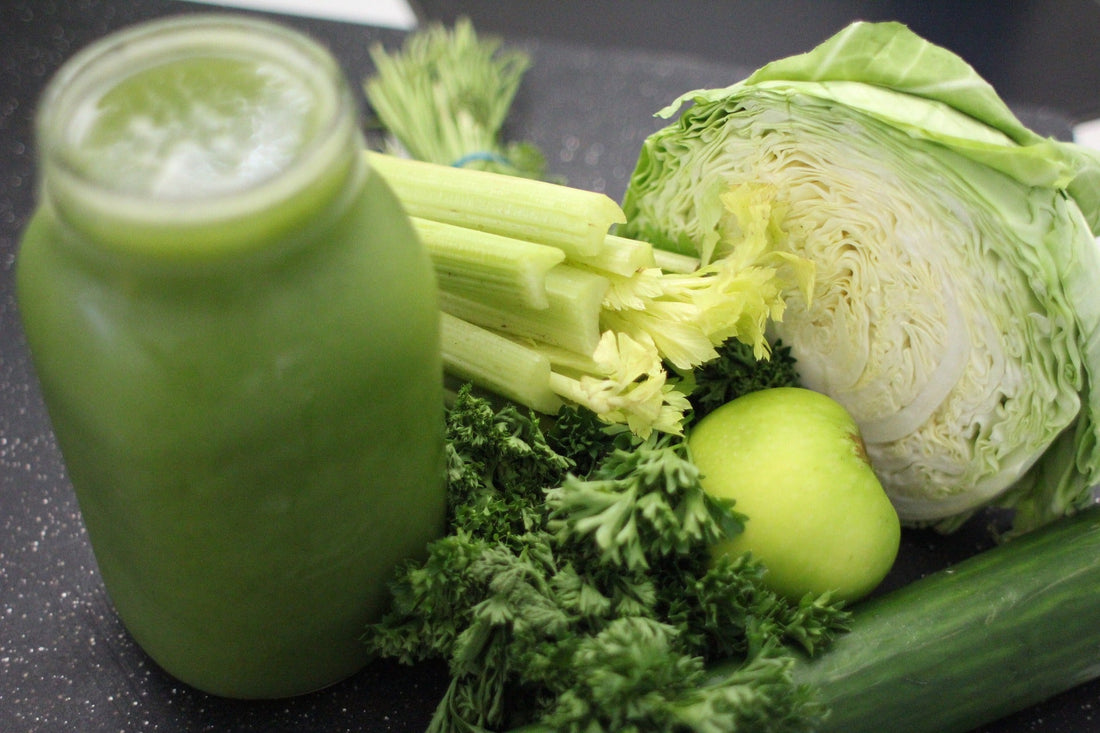
Improving Your Mood, Energy Levels, and Mental Health through Diet and Nutrition
Share
Have you ever noticed how what you eat can affect your mood, energy levels, and overall mental health? The food we eat provides our bodies with the nutrients it needs to function, and what we eat can have a significant impact on our mental and emotional well-being. Here are some tips on how to improve your mood, energy levels, and mental health through diet and nutrition.
Eat a balanced diet: Eating a balanced diet that includes plenty of fruits, vegetables, whole grains, and lean proteins can help provide your body with the nutrients it needs to function optimally. Foods high in vitamins and minerals, such as leafy greens and berries, can help improve brain function and reduce symptoms of depression and anxiety.
Stay hydrated: Dehydration can cause fatigue and lack of focus. Aim to drink at least 8 glasses of water per day, and more if you're active or in hot weather. Staying hydrated can help boost energy levels and improve cognitive function. A study published in the Journal of Nutrition found that mild dehydration can impair cognitive performance, including attention, memory, and motor coordination
Increase your intake of omega-3 fatty acids: Omega-3 fatty acids, found in fatty fish, nuts, and seeds, are essential for brain function and can help reduce symptoms of depression and anxiety. Consider adding foods like salmon, walnuts, and chia seeds to your diet. A study published in the Journal of Psychiatric Research found that omega-3 supplementation improved symptoms of depression in young adults.
Reduce your intake of processed foods and refined sugars: Processed foods and refined sugars can cause a rapid spike in blood sugar levels, followed by a crash, which can leave you feeling tired and irritable. Instead, opt for whole, unprocessed foods like fruits, vegetables, and whole grains, which can provide sustained energy throughout the day.
Consider adding probiotics to your diet: Probiotics, found in fermented foods like yogurt, sauerkraut, and kefir, can help improve gut health and may have a positive impact on mood and anxiety. A review of studies published in the Journal of Psychiatric Research found that probiotics can improve symptoms of depression and anxiety. The review concluded that probiotics may have a positive impact on gut-brain communication
Limit your alcohol and caffeine intake: While a cup of coffee or glass of wine can be enjoyable, excessive alcohol and caffeine consumption can have negative effects on your mental health. Alcohol is a depressant and can exacerbate symptoms of depression and anxiety, while caffeine can cause anxiety and disrupt sleep.
Add Superfood juices to your diet: Superfood juices such as wheatgrass juice, is a natural anxiety reliever. This powerhouse of a superfood juice contains the mood-enhancing properties of chlorophyll, B- Vitamins, Vitamin C, Vitamin A, Vitamin E, Vitamin K, selenium, zinc and essential amino acids.
The main component of wheatgrass juice is chlorophyll, which is rich in magnesium, which helps to reduce anxiety. People with low magnesium intake are more likely to experience anxiety.
Wheatgrass juice is rich in vitamins, minerals, and antioxidants that can help improve energy levels and support overall health.
In conclusion, what we eat can have a profound impact on our mood, energy levels, and mental health. By focusing on a balanced diet and incorporating nutrient-dense foods, we can provide our bodies with the nutrients it needs to function optimally.
To add nutrient rich superfood juices to your diet, visit our shop here today.

